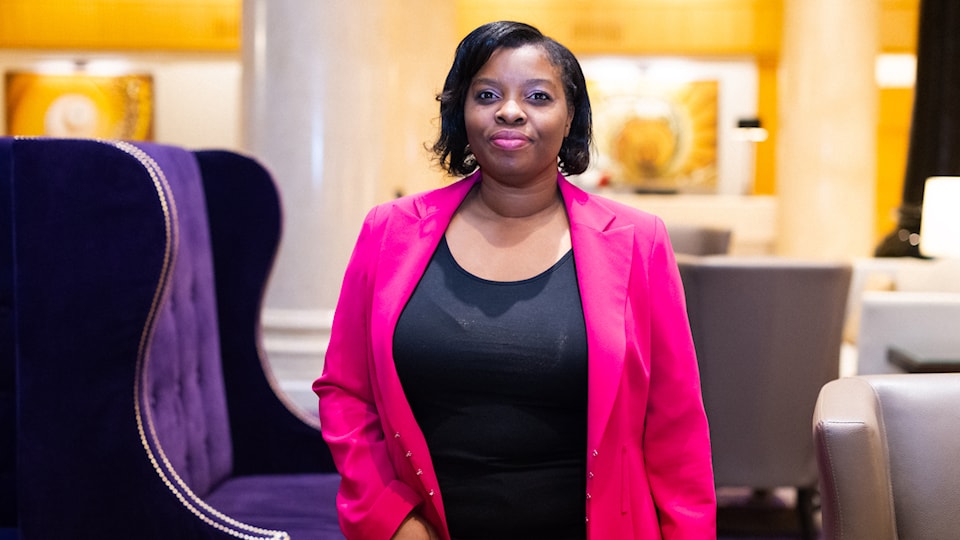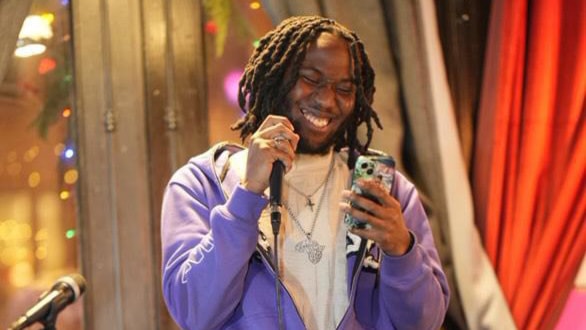The House of Commons officially recognized February as Black History Month in December 1995, following a motion introduced by Dr. Jean Augustine.
David Lawrence, a 20-year-old poet, said representing Black history would be nice if 12 people for the 12 months of the year have done something spectacular for the Black community each month in regards to representing Black history.
“I'm not too sure how exactly the structure of that is tackling something like this,” he said.
“I think to make Black History Month more year-round, we would have to structure it around like different Black dimensions, people events, carnivals, that really help the public realize just how important black history is,” Lawrence said.
He said a lot of young people are very influenced by what they see.
“If you were to take a Black child and have them raised in a, say, a Caucasian home, or a white child and have them raised in a Jamaican home, you'll have a huge, huge difference in how they like to carry themselves,” Lawrence said.
“Growing up with a single mom, growing up with like four sisters, being the only man around, like finding out more things about my father, you know it's like my Black history,” he said.
Lawrence thinks it makes it easier to talk about it when the person is not afraid of what or who they are.
“ I think naturally what should occur is every month there is something,” said Phillip Saunders, a Toronto-based artist.
“There is something that celebrates Black greatness, Black achievement, and Black excellence,” he said.
Saunders said it has Black people come together to acknowledge great things.
“I think it's something we should do as a tradition because there's a lot of ground to cover in blackness,” he said. ”There's a lot of complexity, a lot of inherent difficulty and I think doing a monthly celebration that is accepted by all would help to remedy that.”
He said it wouldn’t just be the shortest month of the year, but it would be year-round.

Chenai Kadungure, a public speaker and executive director of the Black Physicians’ Association of Ontario (BPAO), said she thinks Black history should be celebrated throughout the year.
“ The month is just about saying this is a focus because of the event,” she said.
BPAO is a non-profit organization that focuses on the representation of Black people in medicine.
“I do think there should be almost like an openness to learning at any time of the year,” Kadungure said.
”So if you have, let's just say an event in June or something, people will say, you know, they literally won't attend it because it's like we only do things with Black people in February,” she said.
Kadungure said she thinks there is still a long way from a “true sort of inclusion” and the understanding of different communities.
”So I'd like to see a bit more attention past February,” she said.
“If you're a company that decides to have a lunch and learn where you're going to have someone from the community speak, that should not just be a February invitation when you're doing your budgets,” Kadungure said.
She said working with racialized populations in other ways should be considered.
“ Finding ways to thread that community in your every day, I think is probably the best level of allyship and interest,” Kadungure said.
The Toronto Public Library offers year-round programs and events that are focused on Black history and culture at each of its branches, including book clubs, films to watch, and African drumming.
“Why we have it is because we recognize Black History Month, we celebrate it, we want to recognize and create different programs,” said Rachelle Gooden, a senior service specialist with the Toronto Public Library.
“In that book club people ... they'd read the book in advance, they come and discuss it and the books we've chosen have a great mix of Canadian content, American content, and some very thought-provoking issues are covered,” she said.
Gooden said they have more than 20 book titles from Black authors available for use in the book club.
“Most of the films are chosen thoughtfully. When it comes to Black History Month, it's not just like a come in and watch the film,” she said. “There's usually some sort of message behind it."
With regards to the drumming activity, she said the children would have a drum and they would be able to participate, learn and ask questions.
Gooden said the purpose of the Black history activities the Toronto Public Library has is to highlight the significant contributions of our black writers and artists around Canada and the world and the importance of learning.
“Celebrating, enjoying, and seeing the different multifaceted things about Black history,” she said.




